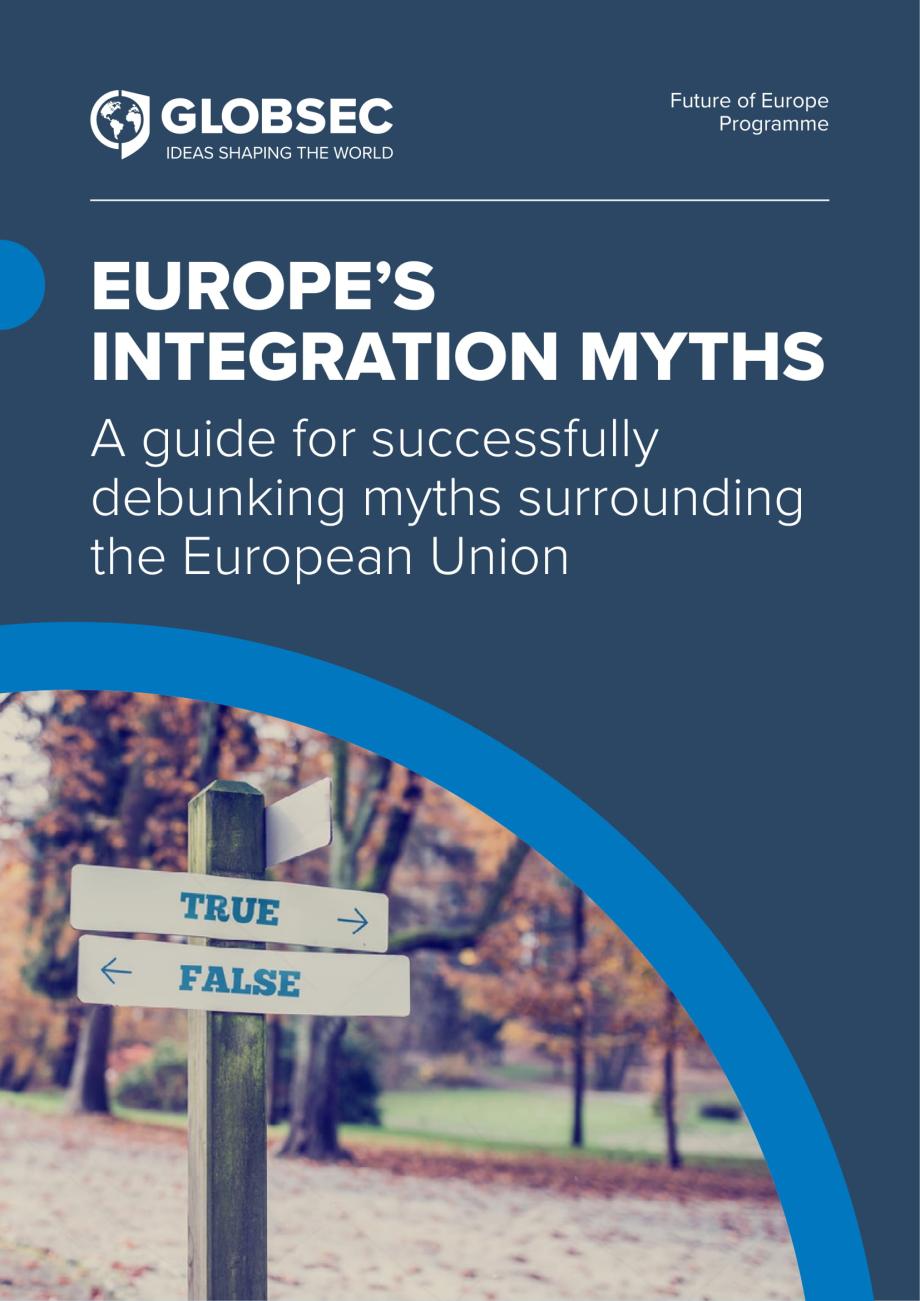GLOBSEC Guide for debunking myths about the European Union

What people think matters in our increasingly high-speed, post-truth, well-connected world. However, what people choose to think is sometimes based on false assumptions. An overwhelming abundance of information is as counter-productive as the lack of it. Few people have time to sieve through the flood of information they receive every minute; even fewer strive to verify ‘facts and figures’.
That is why GLOBSEC decided to develop a concise guide that helps address some of the most common myths about the European Union in a succinct and comprehensible manner.
What myths are we debunking?
Myth #1: The European Union is falling apart
Myth #2: Member states are under a ‘Brussels diktat’
Myth #3: The European Union is a ‘bureaucratic monster’
Myth #4 France and Germany dominate the European Union
Myth #5: The euro is the cause of all evils
Myth #6: The European Union is “naïve” about free trade
Myth #7: Complicated privacy regulations make European businesses uncompetitive
Myth #8: We are experiencing the Islamisation of Europe
Myth #9: The European Union is a paradise for refugees
Myth #10: Refugees are the main cause of terrorist attacks in Europe
Myth #11: The European Union suffers from terrorism because we are too soft on extremists
Who is it for?
This short guide is primarily aimed at politicians, communication and media officers, public officials, civil society activists and teachers frustrated by the use of alternative facts to undermine their work in building a better EU for everyone. They can use it as a reference point. But in the end, the messages are for all concerned citizens.
Why have a copy?
People demand direct communication from their public officials. It takes time to select and highlight the necessary information or construct a logical argument. Indeed, it is almost impossible to remember everything surrounding every issue. This guide will be your reliable and time-saving companion on occasions when you are faced with a difficult question or find it necessary to correct faulty assumptions.
And these occasions will be more and more frequent. Elections to the European Parliament are only a year away. Discussions about reform of the EU are accelerating, and citizens need to be convinced of their meaningfulness and value. National conventions are happening in more and more countries. Journalists never stop asking questions.
Do facts matter?
Yes, more than ever. But it is of course also about how facts are communicated. Facts are regularly used as part of a personal story or passionate address. Similarly, social media and communication strategies disseminate ideas and ‘truths’. A tweet can by funny, touching, trustworthy and reality-based all at the same time. We aim to help with the latter part of the mix.
We prepared this guide as a supplement to discussions at GLOBSEC 2018 Bratislava Forum. But we also wanted you to walk away with something that supplements intricate messages with digestible, reasoned and seasoned answers that you can easily offer to media, constituents and others.
The reality checks to these myths and more can be found in our publication.
Europe’s Integration Myths: A guide for successfully debunking myths surrounding the European Union.

